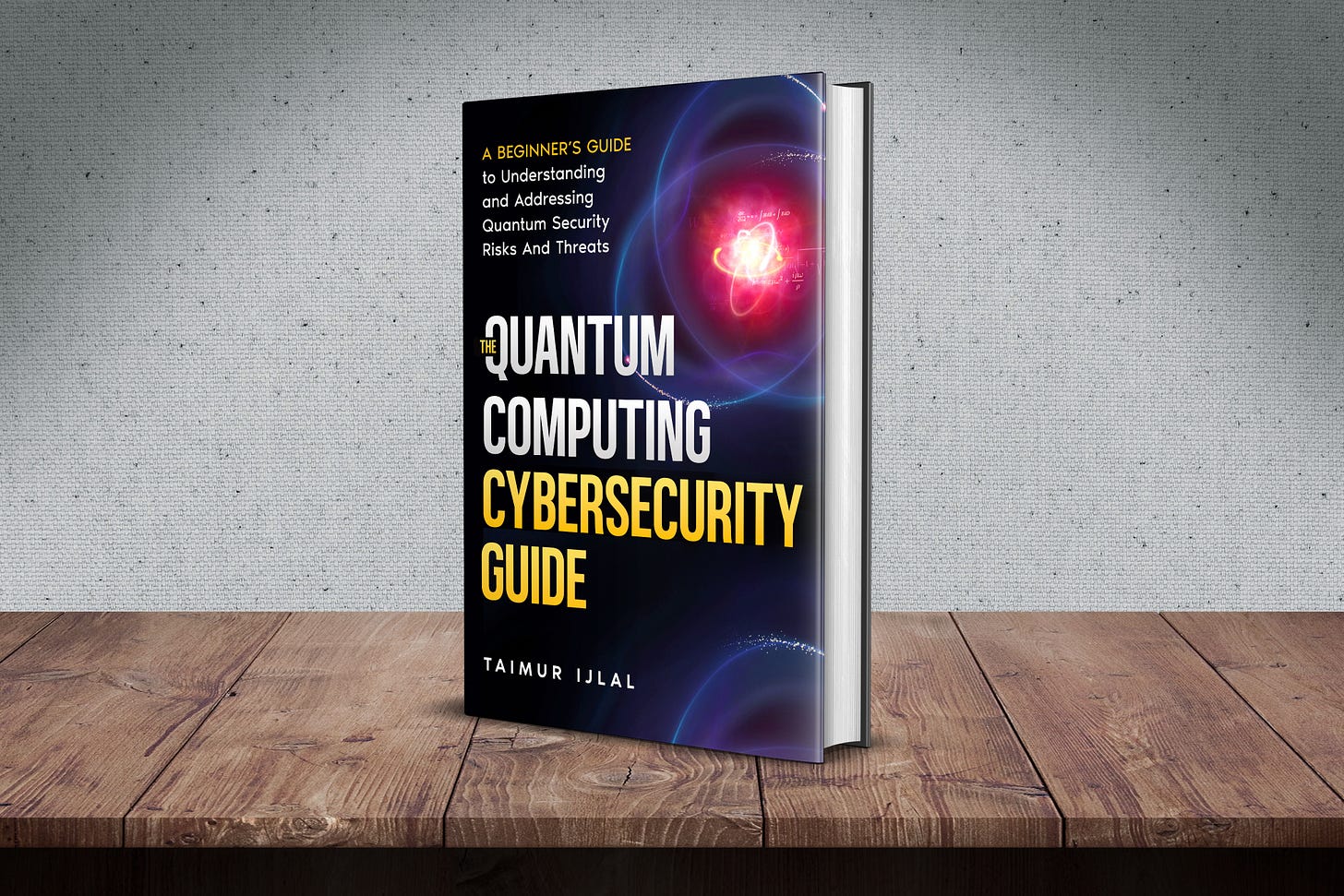The Quantum Clock Is Ticking: Why CISOs Must Act Now
Is Quantum Computing Just Hype Or A Game-changer?
Quantum computing is one of those things everyone keeps hearing about — but few truly understand.
Unlike Generative AI, which exploded into the mainstream seemingly overnight and caught even the most prepared CISOs off guard, quantum computing has remained in the background — complex, theoretical, and safely “years away.”
But that illusion of distance is fading.
Rapid advances suggest that quantum disruption may arrive sooner than most cybersecurity leaders expect.
And this time, there won’t be the luxury of playing catch-up.
If GenAI was a surprise stress test of leadership, quantum security is the next big exam — and failing it could have much higher stakes.
But before we dive into what’s coming and why it matters… let’s start with the basics.
What is the big deal about Quantum Computing?
Quantum computing isn’t just the next big thing — it’s a seismic shift in how we process information.
Built on the mind-bending principles of quantum mechanics, quantum computers promise computational power at a scale we’ve never seen before.
Tasks that would take today’s fastest supercomputers years to complete could be solved by quantum systems in mere seconds.
While that sounds like a dream for innovation, it’s a nightmare for cybersecurity.
At the heart of this threat are the cryptographic keys that secure our digital lives — from credit card transactions and PII to encrypted messages and secure communications.
For decades, our encryption methods have relied on mathematical problems that are easy to compute in one direction, but nearly impossible to reverse without the right key.
Quantum computing breaks that rule.
What’s currently “impossible” could become trivial.
Experts have warned for years: once large-scale quantum computers are a reality, they could render today’s encryption algorithms obsolete — shattering RSA, ECC, and other foundational cryptographic systems in seconds.
But the danger isn’t just theoretical.
Nation-states and cybercriminals are believed to be harvesting encrypted data today, in anticipation of decrypting it later when quantum power becomes available — a strategy known as “harvest now, decrypt later.”
This means even data that seems secure now could be dangerously exposed in the future. Attackers could forge digital signatures, impersonate trusted entities, and wreak havoc by breaking the trust backbone of the internet.
For CISOs and cybersecurity professionals, this isn’t just a technical challenge — it’s a career-defining shift.
A Post-Quantum Security World
The threat of quantum computing making modern encryption obsolete is not new and has been warned about for years.
The National Institute of Standards and Technology (NIST) has released post-quantum cryptography standards and is encouraging companies to start their migrations to a Quantum-safe cryptography
These standards are designed to withstand the computational power of quantum computers, ensuring the security of sensitive data in a post-quantum world.
I will not bore you with the technical details but I would like to talk about what they mean for CISOs and Cybersecurity leaders.
These new algorithms are designed to replace existing cryptographic methods as quantum computing becomes a reality.
Cybersecurity professionals will need to become proficient in these new standards, as their implementation across industries and government institutions will be essential to maintain data security.
NIST is encouraging system administrators to integrate these new encryption methods immediately, as the transition will take time.
Companies and Governments will scramble to ensure they are not vulnerable to Quantum attacks.
There will be a growing demand for professionals skilled in quantum-resistant encryption methods.
Cybersecurity experts must update their knowledge and skills to stay relevant in this rapidly changing field.
Misconceptions That Delay Action
Despite the urgency, many CISOs and organizations still believe myths that delay quantum readiness:
“We’ll wait until it’s real.”
By the time a threat is real, it’s already too late to prepare. Remember: quantum computers don’t need to be deployed widely to cause damage. HNDL attacks can be silently happening now.
“We’ll patch it when we have to.”
You can’t “patch” your way to quantum safety. Cryptographic transitions take years, not weeks.
“This is only relevant to banks or governments.”
Wrong. Every business with a website, digital signature, encrypted email, or cloud system is affected.
“I’ll take a course or certification later.”
Great — but if you’re in a leadership or security decision-making role, the planning needs to start now. Knowledge is power, but readiness is strategy.
Preparing for a Post-Quantum World
Scientists have predicted that Quantum power will be available at the given rate in the next 5 to 10 years.
IBM predicts it will deliver its first error-corrected quantum system by 2029.
That puts us within a 5 to 10-year window — or less — before current cryptographic protections become vulnerable.
The release of NIST’s first set of post-quantum cryptography (PQC) standards is a clear signal: this is real, and the clock is ticking. You can expect a wave of regulatory mandates soon, beginning with U.S. federal agencies and extending across industries worldwide.
The EU, ISO, and other global standard bodies will not be far behind.
For CISOs, the first successful quantum attack won’t just be a technical crisis — it will be a full-scale trust crisis.
Digital certificates, VPN tunnels, encrypted records, and identity systems could all be rendered invalid overnight. The organizations that aren’t prepared will be forced into chaotic emergency response.
Now is the time to act strategically.
Here’s what CISOs should prioritize:
Begin crypto-inventory assessments across all internal and third-party systems
Establish crypto-agility plans to allow seamless algorithm updates
Engage with vendors and regulators to align on post-quantum readiness
Develop post-quantum upskilling programs for security teams
Include PQC transition in your board-level cyber risk reporting
Cybersecurity leaders who guide their organizations through this transition will be at the forefront of the next wave of cyber resilience. Those who delay risk becoming liabilities when the quantum shift hits.
Post-quantum security isn’t just a technical upgrade — it’s a strategic imperative and a leadership opportunity.
The quantum era is coming.
Be the CISO who’s ready for it.
Thanks for reading this . If you are interesting in reading more then check out my latest book on Quantum security which is currently free on Kindle






Great insights! Quantum threats are real and imminent — CISOs must act now to adopt quantum-resistant strategies and protect future systems.
https://codeguardian.ai/products-and-solutions/cloud-security